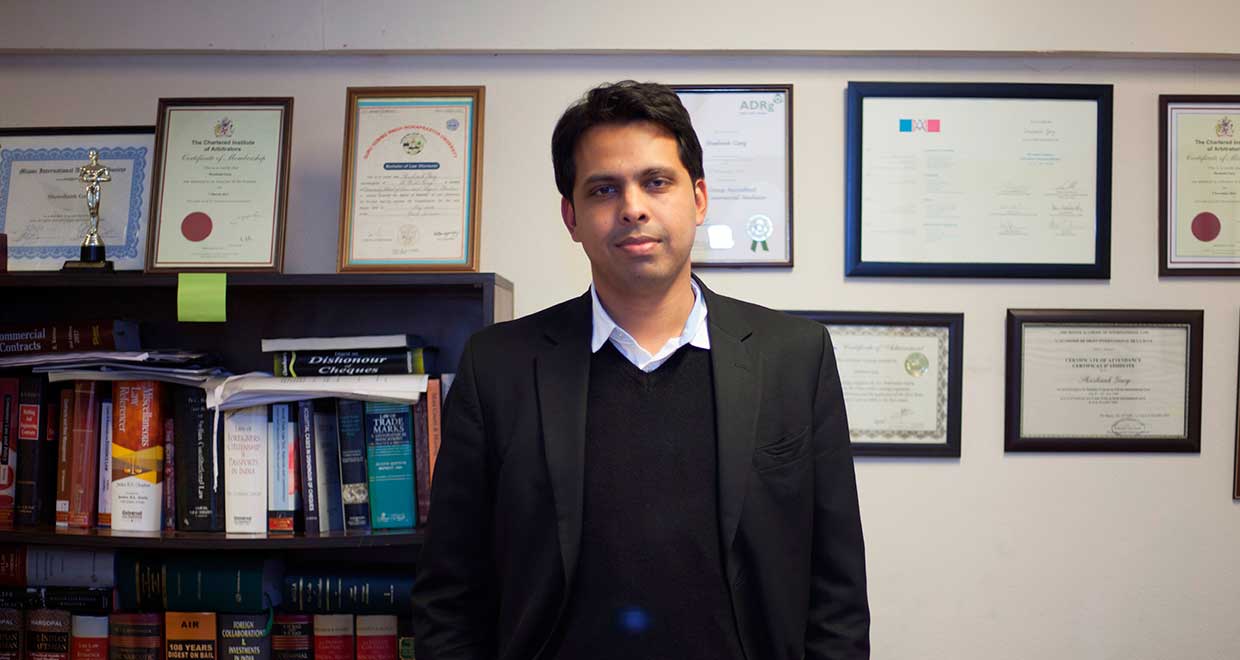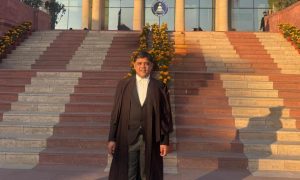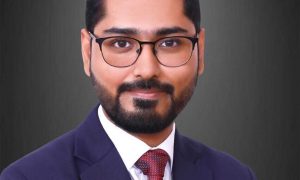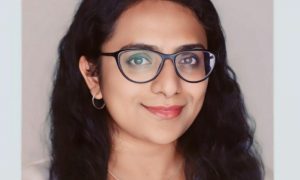Shashank Garg is a graduate from Guru Gobind Singh Indraprastha University, batch of 2008. Since then, he has worked at Parag Tripathi Law Chambers, Accendo Law Partners, Advani & Co., among others. He has represented the state of UP as well as the central government before the Supreme Court of India. He then went on to pursue his Master’s degree from the University of Nottingham in 2008, with a focus on International Commercial Law.
In this interview, we speak to him about:
- Being a first generation lawyer
- His experience in arbitration, litigation, and commercial law
- His successful publications, and studying in the UK
Please introduce yourself to our readers.
I am an avid traveler by choice, and a commercial lawyer for nine years by profession.
Were you always inclined towards law?
I zeroed in on law after eliminating all other possible alternatives. My parents had given up on me after they noticed my general apathy towards anything that involved reading or writing. Funnily enough I ended up choosing law where both the things I hated as a kid became an indispensable part of the job. I am a first generation lawyer and frankly that is a blessing in many ways as you can carve out your own path without the pressure of any standards/expectations set out by your elders in the profession. I studied at USLLS (GGSIP University, Delhi) which gave us enormous exposure. The energy on campus was infectious, to say the least. Diverse internships, conferences, moots and other events that I was involved in helped me crystallize my interest towards litigation.
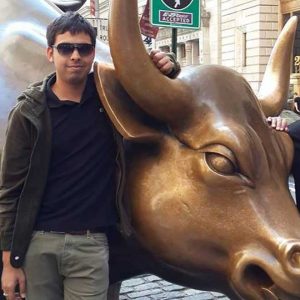
How did you start your legal career?
I was amongst the lucky few who got the opportunity to wear the robe for the first time at the Chambers of Mr. Harish Salve, where I was already an intern before graduating. I proceeded to do my masters in a few months thereafter but that short experience reinforced my liking for litigation. My masters was in International Commercial Laws from the University of Nottingham, U.K, which was my real introduction to the world of commercial law. However, on my return I joined the chambers of Mr. Parag Tripathi, Sr. Advocate, (then Additional Solicitor General of India) which meant dipping into to the deep ocean of litigation, since he was a government law officer. The chamber used to deal with more than twenty matters on admission days in the Supreme Court. Mr. Tripathi is a tough taskmaster but it was an overwhelming experience. I soon decided to set up an office with two friends (Apar & Animesh) and we founded Accendo Law Partners. We were inexperienced but had a lot patience and energy to make it work. I can’t say if it really worked the way we wanted it to but it was certainly a rewarding journey. We merged with Advani & Co. where our practice became more about hardcore commercial disputes. This meant less of court and more of arbitration but this was in no way any less exciting than litigation. I would say arbitration is a sophisticated version of litigation in terms of action; I now do a balanced mix of both.
Tell us about your time in Nottingham.
Going for masters was an impulsive decision that I thoroughly enjoyed. I made friends with new subjects; ones that I didn’t think were my cup of tea. I was taught Commercial Conflict of Laws by Prof. James Fawcett (author of Cheshire on Private International Law). He is a true legend of the subject. I did my dissertation under him and received distinction. This was my first exposure to world class learning. The faculty teaches so passionately that it motivates every student to perform better. We cannot deny the fact that most law schools in India lack such levels of commitment by faculty members; this is the first big difference you get when you choose to study abroad. Exposure to a foreign university is a great addition to your skill set, however it really depends on an individual how much he can make out of this one year. LL.M. from an Indian university is a great option too since it has been reduced to a year now and most National Law Schools offer very interesting and niche areas for masters programs. One needs to understand what a masters degree is to be able to make this informed choice. Students often take it as an extension of student life by a year but in reality it is deeper understanding of few subjects that you may want to take up as a career choice. I would strongly urge students to go for masters after three to four years into the profession, when they have found their area of interest. It’s always easier to do your masters in a subject that you are practising in then to come back and find a job in the subject area you did your masters in.
Could you talk to us about the certificate courses you pursued?
(Shashank went to Hague Academy for the summer course on private international law in 2009 on scholarship and then took up some more certificate courses internationally.)
I applied to Hague academy while I was doing my masters in U.K and my letter of recommendation was written by Prof. James Fawcett. I feel that his LoR made the difference, Professors of his repute do not write LoRs often. I was informed by the academy that I have been awarded complete scholarship for the course which meant my course fee, my air travel and my stay in Netherlands was paid for by the academy. After coming back to India, I decided to take up new avenues to learn and hone my legal acumen. I attended Certificate Mediation training organized by ADR Group UK which made me a certified civil and commercial mediator, I also attended the 12th Arbitration Academy at University of Cologne, Germany. Even today I try and make a couple of academic trips in a year whether it is to judge an international moot or to speak at a law school. This keeps me connected to the academic world in many ways.
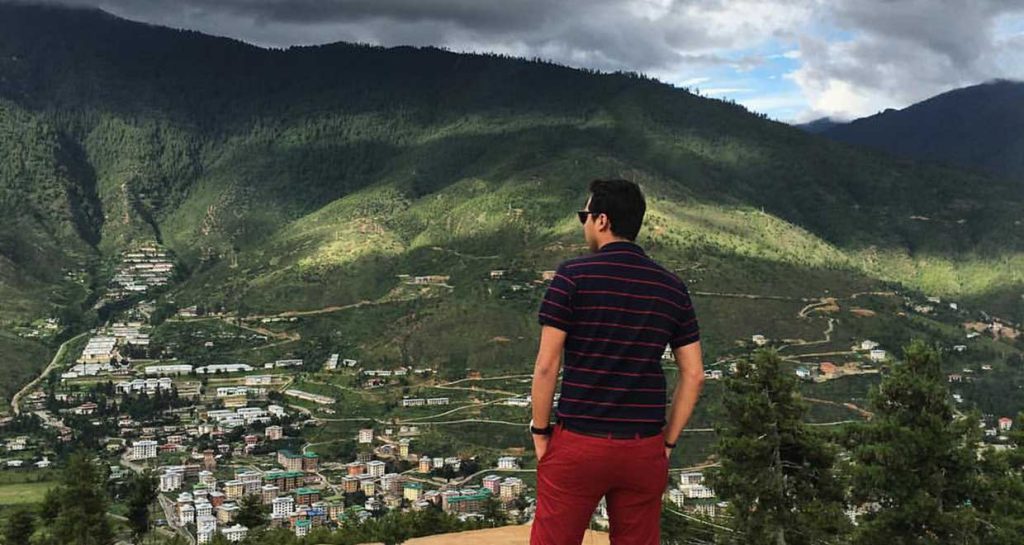
What are your thoughts on arbitration in India?
(Shashank is currently associated with various ADR bodies like IAF, PACT, KCIA and Arbitration Sub-committee of IBA.)
Arbitration in India is the talk of the decade. Fortunately this decade has seen a lot of positive change. We have seen the amended law in arbitration which was brought to imbibe more confidence in the end users. However, with that noble thought our legislature proceeded in an over-zealous manner, thus creating a rather impractical scenario of arbitration instead. The Arbitration is here to stay and thus the courts and charming lawyers are finding innovative solutions to the problems being posed by amended law. Courts in India, especially New Delhi, have to be given their due credit in making arbitration stand tall and firm. We are also witnessing rapid growth of institutionalized arbitration in India, with most PSUs using ICC, SIAC or LCIA clauses in their commercial contracts with foreign parties. MCIA at Mumbai is certainly a fresh breath of air in this environment with world class facilities and some of the top people worldwide endorsing it to be the next big thing in the Asian region.
Practise of arbitration is distinct from litigation. Unless you do arbitration the way it’s to be done, you wouldn’t notice the difference. Sadly, many civil lawyers doing arbitration have made CPC their Bible for all practical purposes, causing confusion of concepts amongst law students and young lawyers. The most important thing to keep in mind for practising Arbitration is the fact that it is a private justice delivery system with the backing of law.
In your opinion, what skills have contributed the most to your success?
I would not call my experience a lot but yes I had the good fortune of exposing myself to diverse fields, I authored a book titled Tourism Laws in India in 2013 for travelers to have a ready compendium of laws that they may need during their journey in India as a tourist. The second edition is likely to come this year by May. My other book on ADR is being published by Oxford University Press and should be out by July 2017. Moreover, I am working on another book which is being published by EBC on Criminal Investigation and prosecution. Recently I contributed to the LexisNexis publication on arbitration that was published for Niti Ayog. In my practice, other than commercial arbitration, I am doing criminal law, media and entertainment law and aviation law as well. Diversity comes from curiosity; I have been curious about my limits, interests, and capabilities, and in this process I have gained tremendous amount of confidence in dealing with my limitations.
Being a first generation lawyer one should prepare for an adventure. If you go the traditional way, you are likely to give up soon as the charms and gifts of the legal profession take time to come by your side. Be self aware and work towards your shortcomings by accepting them and not by covering them up. Perseverance and commitment are the two key skills that should be learnt at an early stage in your career. As a lawyer, your communication is your identity, whether written or oral; be clear and crisp in that to create a strong impression. Simple steps such as reading the newspaper can help you develop awareness of issues around you giving you confidence to communicate in any setup. Use your time carefully when you intern as those are the places you can afford to make mistakes and create opportunities for yourself.
Did you also engage in any extra-curricular activities as a student?
As a student I focused on anything that was new and challenging, I would not call these activities extracurricular as such. Our law school was quite new and we were the third batch to come in, I decided to make a mark for the law school by organizing various events such as international moots, (Jessup, North India) and the Law Lecture series (lectures were delivered by: Justice R.C Lahoti then Chief Justice of India, Mr. KK Venugopal, Mr. Soli Sorabjee, Dr. L.M Singhvi, Mr. R.K Jain, Mr. Ram Jethmalani and Mr. Harish Salve). I really doubt if any law school in the country has had all these legends coming to speak at their campus. We did many such things with the help of great batch mates and highly reliable juniors. In fact, my student life at the law school was more outside the classroom than inside. My current hobbies would include travelling and sleeping as much as I can – I hope I don’t have to change any of these in future also.
Talk to us about your resume as it stands today.
I have been a chamber junior at litigation chambers; I have been a partner at my own start-up followed by being a partner at a 30 year old arbitration specialist law firm and then being a partner at another more than 30 year old traditional commercial litigation law firm. The journey was exhilarating; each place had its own character and persona. Today I am wearing multiple hats and happily so–Partner-In Charge for Advani & Co. Delhi, Spl. Counsel for Delhi Development Authority, and Standing Counsel for State of Goa are some of my active roles.
A resume/CV should not exceed two pages and in rare cases, three. For a fresher applying for a job or for a student applying for an internship their resume/CV is their face for the prospective employer and most decisions are taken by way of elimination. In other words given the heavy application load, HR of firms often look for mistakes in the resume to trash it so that only most serious and sincere students make it.
As a tip, keep it clean and honest (removing achievements of school life and things that are unlikely to matter to your employer).You should be able to answer everything on your CV as the puffery used in CVs is often detected by the interviewer. No particular aspect can be considered more important than other as all of it would depend on where you are applying and what is your choice of practice area. As a matter of practise: academics, internships, publications, extracurricular would together form a complete CV.
What do you think is the best way for students to prepare themselves for the professional world?
The first step is realization; the sooner a student realizes that he has to step into the professional world after law school is over, the better it is. Many students realize this in the last semester and by then it gets too late to build a formidable CV. Also, during internships you should identify areas you don’t like instead of areas you like, this way you keep many options open by eliminating areas that are not your cup of tea. First two years will be intense and harsh and the same should be treated as training on a stipend to feel better about it. Your internships will give you a preview of what you are likely to see when you join an office. No work in office should be considered below your dignity–standing in queues, picking up files, photocopying, etc. are some of the usual tasks in the early years of the profession.
I was prepared for it all but yes, it is never enough. You feel the pressure of deadlines like never before as these are real clients and real cases. Weekends and friends can suddenly become a myth and sleep is your only craving. But it all gets better with time and you start enjoying the pressure.
Tell us a little about your internships.
Being a first generation lawyer, internships were the first thing I focused on. I had no network or contacts to get into prestigious firms and chambers. So I decided to create opportunities instead of waiting for them. I interned with Sr. Advocates like Shanti Bhushan, Collin Gonsalves, Harish Salve, Iqbal Chagla, M.N Krishnamani and K.K Venugopal, and firms like AZB & Partners, Vaish & Associates, and Archilex Law Corporation in Singapore. I also interned at NHRC and Securities Appellate Tribunal, Mumbai. Each internship opened new avenues of opportunities. Since most of my internships were with senior counsels in Supreme Court I was sufficiently prepared for my role as a junior counsel or at least I thought so.
There was so much to learn at each of these places, I learnt core professional values while getting exposed to the various nuances of legal world. It is difficult to spell out what I had learnt but I learnt an important lesson that winning the court is different and far more important than winning the client.
Any last piece of advice for our young readers?
There is no dearth of work in this profession but there still is cut throat competition. Getting insecure is the last thing you should do when you begin you career. Let your long term career goals chart out your short term career choices and not the other way round. If you get a chance to work at a good office which offers you comfort and mentoring both, do not be in a hurry to leave it for a fatter pay cheque.

